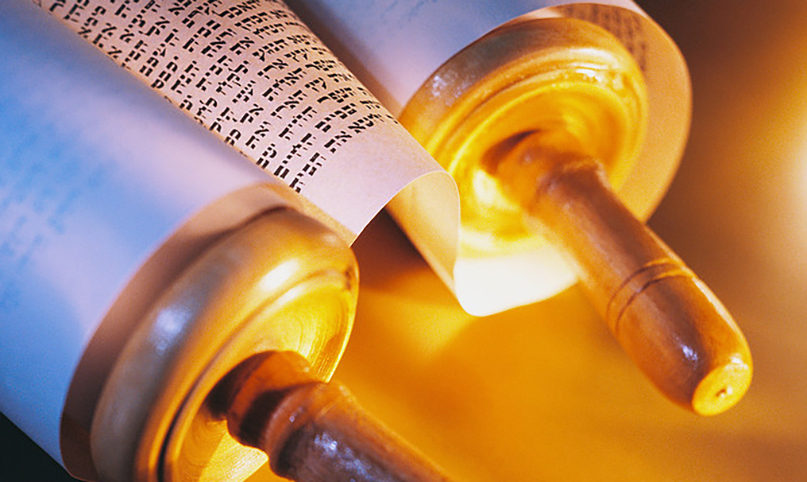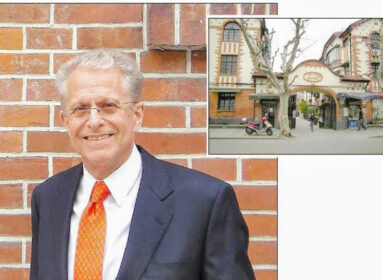
By Shlomo Riskin
“And God spoke unto Moses saying, “Send out men for yourself to spy out the Land of Canaan, which I give unto the children of Israel; of every tribe of their fathers shall you send a man, everyone a prince among them.” (Numbers 13:2 )
As the portion of Shelacĥ opens, we read how God commands the Israelites to send ahead men to spy and explore the Land of Israel.
The report from 10 out of 12 men on this spy mission was a negative and discouraging one, which only served to divert the Israelites from their God-given mission of the conquest of the land of Israel. Why did God command the sending of scouts in the first place? Why risk a rebellion in the ranks by requesting a committee report which may well go against the divine will to conquer and settle Israel?
A totally different perspective is to be found in a remarkable interpretation given by Rabbenu Tzadok HaKohen of Lublin (1823–1900), a great Hasidic master, in Pri Tzaddik, his commentary on the Torah. He points out a striking analogy between the incident of the scouts and the gift of the second tablets which came as a result of the sin of the Golden Calf, both conceptually as well as textually: in both cases the Almighty saw the necessity of involving – even establishing a partnership with – the people, the nation of Israel.
In what way were the second tablets an improvement on the first tablets which Moses smashed, and which God congratulated him for smashing (Exodus 34:1, Yevamot 62a)? What was “built into” the second tablets which would be more likely to prevent a fiasco of the proportion of the sin of the Golden Calf, which occurred only 40 days after the gift of the first tablets? The fact that the first tablets had been “written with the finger of God” (Exodus 31:18), and were in actuality the very “script of the divine,” whereas the second tablets were “hewn out” by Moses (Exodus 34:1) and thereby were created as a result of human involvement, suggests the difference: the first tablets were the product of divine creativity alone; the second tablets involved human cooperation, setting the stage for rabbinical interpretation, decrees, and enactments which are such a major portion of what we call the “Oral Law.” The Oral Law not only accepts but requires the direct participation of rabbinical leadership, and even the involvement of the masses of committed Jews (Pri Tzaddik on Exodus, Ki Tissa 3, and on Numbers, Shelacĥ 2).
Of course, we believe that the major principles and salient laws of the Oral Torah were also given by God. However, the sages of each generation must actively interpret the Torah and often plumb from its depths great innovative concepts necessary for the needs of that generation. Indeed, in a stunning Talmudic passage, the rules of rabbinical exegesis can even cause the Almighty Himself to accept a decision of the majority of the sages, causing Him to cry out, “My children have conquered Me” (Bava Metzia 39b). The very words with which God commands Moses to “hew out” the second tablets, “psal lekha” (Exodus 34:1), also contain a nuance: you, Moses, have the authority and the obligation to determine whether an activity or object is pasul (improper and invalid). The sages are given the power to add decrees and enactments (gezerot and takkanot) to the body of the Torah, many of which – such as lighting candles on the eve of the Sabbath and festivals, the kindling of the Chanukah menorah, and the reading of the Purim Megillah – have become major expressions of our Torah commitment and lifestyle (Deut. 17:8–11). Moreover, no such decrees or enactments can become part and parcel of the Torah of Israel without the endorsement of the majority of the people who have the right of acceptance or rejection. The masses of committed people, the hoi polloi or hamon ha’am, have also initiated customs throughout the generations which assume the status of Torah law (minhag Yisrael din hu, the customs of Israel are law).
All of this suggests a Torah which is not the product of ossified paternalism – as divinely perfect as such a Torah might be – but is rather the result of a living partnership between God and His people. Apparently, the Almighty believed – after the tragic trauma of the Golden Calf – that only a Torah involving the active participation of the Israelites could survive the seductive pitfalls of idolatry and immorality.
Fascinatingly enough, the phrase “psal lekha” (Exodus 34:1) parallels the words God uses to command the scouts, “shelacĥ lekha,” send out for yourselves, in the beginning of our portion. God apparently understood that a mission as important as the conquest of Israel could not take place without the enthusiastic approbation and participation of the people.
Of course, opening up the process – be it Torah interpretation or the appointment of a reconnaissance committee – is fraught with danger. But it was a chance that God understood had to be taken if He desired His nation to be more than marching robots. He realized that despite the inherent risk which came from involving the people, excluding them would be a more likely prescription for disaster. Just as a wise parent and a sagacious educator understand that children/students must be “involved in the process” so that hopefully they will continue the path even after they achieve independence, the Almighty set the stage for our continuous devotion to Torah and our third return to Israel – despite our many setbacks – by insisting on the participation of His people!
Rabbi Shlomo Riskin is chancellor of Ohr Torah Stone and chief rabbi of Efrat, Israel.








 Southern New England Jewish Ledger
Southern New England Jewish Ledger












